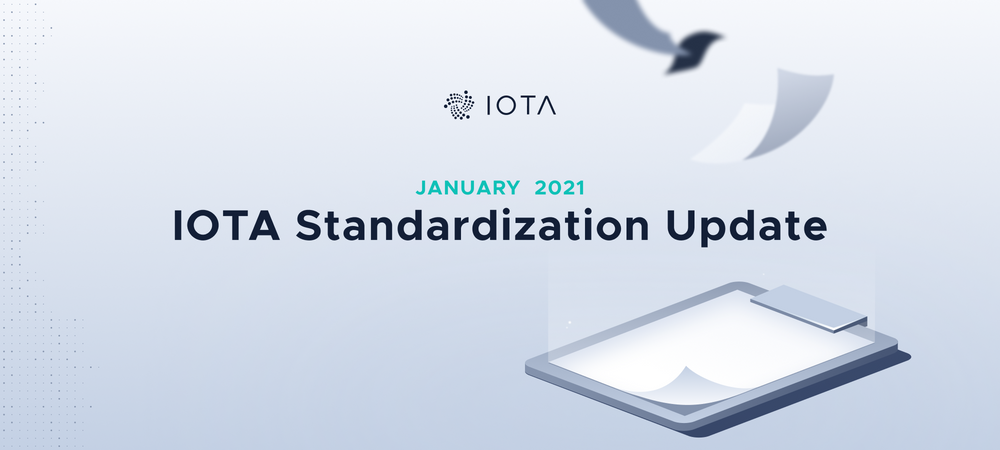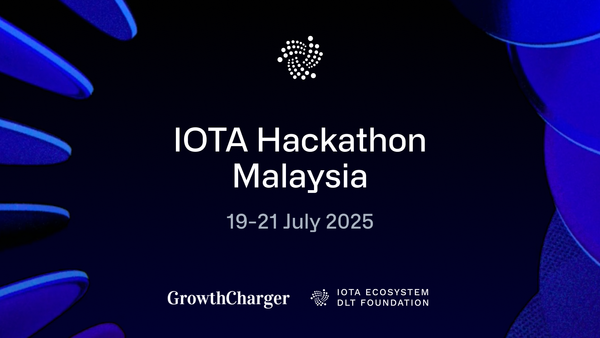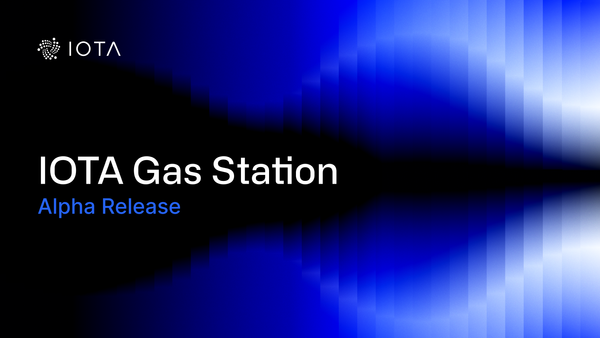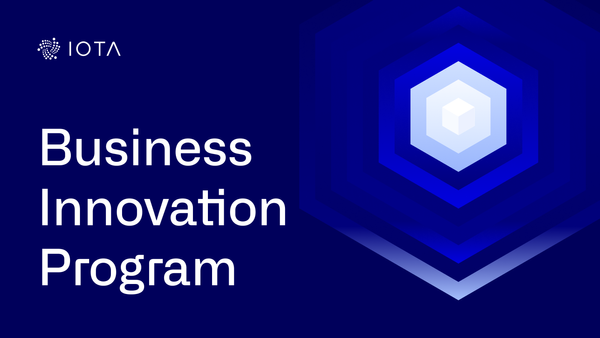IOTA Standardization Update — January 2021
Read the first IOTA Standardization Update here.
The last Object Management Group (OMG) meeting took place in December. Among the things discussed were a number of initiatives of relevance to the IOTA community. This blog post is a brief update of the current state of OMG’s standardization work involving IOTA and the distributed ledger technology space in general.
At this meeting the main items of interest were the Linked Encrypted Transaction Streams (LETS) RFP, the Disposable Self-sovereign Identity RFI and a new Certified Provider for FIGI identifiers for crypto assets.
Overview
The Object Management Group (OMG) meets every quarter for a week of intensive meetings across a wide range of task forces and special interest groups. These cover a range of technologies (the ‘Platform’ task forces) and industry verticals (Domain task forces).
Special Interest Groups (Platform SIGs and Domain SIGs, PSIG and DSIG) address specific areas of interest but are not able to directly submit or vote on standards proposals. Instead, a SIG will coordinate with whichever PTF or DTF is most appropriate for any specific ideas they want to bring forward through the standards process.
Of particular interest to the IOTA community are the activities of the Blockchain PSIG. Despite its name, this SIG covers all matters relating to distributed ledger technology, including the upcoming IOTA standards proposals. The blockchain PSIG liaises with a Platform task force called the Middleware and Related Service (MARS) Platform Task Force for the IOTA Protocol standardization proposals and other potential standards from IOTA and elsewhere. The Blockchain PSIG also comes up with ‘Requests for Information’ for topics for which there may be potential for future standardization, in order to find out more about the subject area and consider next steps.
Other activities of interest include the Finance Domain Task Force (FDTF) and some of the activities of the Government Domain Task Force.
These are the main items of interest at the December quarterly meeting:
· IOTA Protocol RFC (status update)
· Linked Encrypted Transaction Streams (LETS) RFP
· Disposable Self Service Identity RFI
· A new Certified Provider for identifiers under the Financial Instrument Global Identifier (FIGI) standard, to cover DLT related assets
There is more detail on these in the previous blog post. This post is to bring you up to date on the current state of each of these activities as of the December Quarterly Meeting.
IOTA Protocol
The IOTA Foundation has a number of formal specifications coming out of the Research department, defining all aspects of the IOTA Protocol as it will be for Coordicide. These specifications will form the basis of the IOTA Protocol RFC, which is expected in mid 2021. This will be the time at which the IOTA Protocol (Coordicide) specifications are at least stable enough that there are no expected breaking changes by the time this is formally finalized into production.
The Blockchain PSIG did a presentation to the MARS PTF, updating them on the current status and expected plans for the IOTA Protocol RFC, including an overview of what sort of thing would be included in the formal submission when it is ready. At present we hope to bring a preview draft of the IOTA Protocol RFC to the March quarterly meeting to review for informational purposes only.
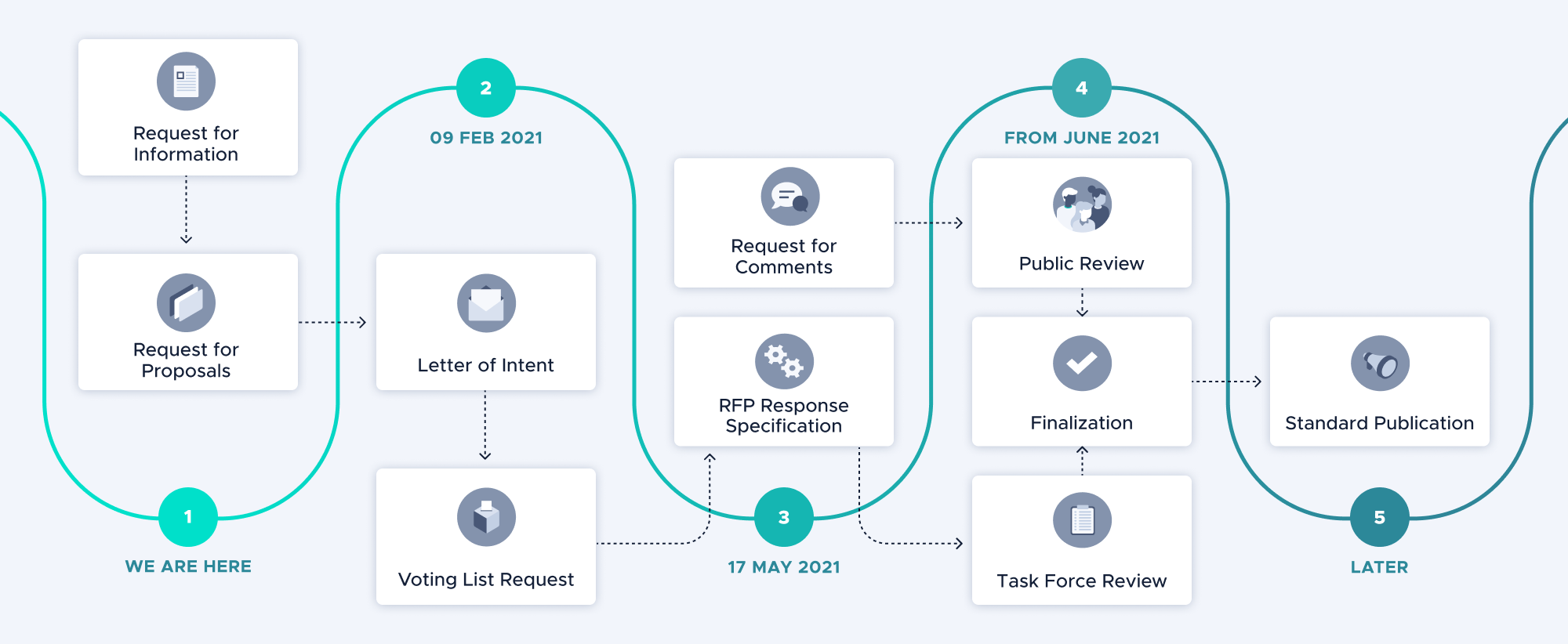
LETS RFP
The Linked Encrypted Transaction Streams [LETS] proposal is to define a standard that would:
- Link methods for arranging transactions into ordered structures, or streams
- Establish methods for applying encryption and digital signing to transaction elements, transaction streams, or parts of transaction streams
- Develop methods to extend the semantics of relationships among message in linked transaction streams
These are independent of any underlying DLT or transport layer, including the Tangle.
The Linked Encrypted Transaction Streams proposal follows the RFP process. This means that once voted on, any OMG member with the appropriate standing may submit a response. The response to the RFP is itself a proposed standard.
You can think of an RFP as a sort of meta-standard: it describes what a standard should be like, and that standard will describe when an application should be like. Anyone writing an application can assert conformance to one or more standards, and in many cases, can assert conformance to specific sub-sets of the features of that standard. The LETS RFP is written with this in mind.
IOTA will submit the specification part of IOTA Streams (the Streams Framework) as a formal response to this RFP. The IOTA Channel application would then be an example of an application that conforms to that standard. We also plan to work with SKALY so that the LETS RFP response is a standard to which both the IOTA Channel application and the SKALY Freighter application may be separately conformant.
The LETS RFP was the subject of a series of meetings throughout the week. We shared the initial draft with the task force responsible for issuing this RFP, the MARS PTF, and with the Architecture Board (AB). The AB is the body responsible for the quality and integrity of OMG standards and RFPs. The week was spent in intensive edits of the RFP document in response to comments from MARS and the AB, including the inclusion of more background material and business justification for why DLT ecosystems like IOTA have a need for linked encrypted streams of messages as defined in the RFP.
The LETS RFP was approved and signed off by the AB on the Thursday (10 December) and is now formally published. Here it is: https://www.omg.org/cgi-bin/doc.cgi?mars/20-12-22
Any OMG member with the appropriate membership level (Platform or Contributing) may submit a response to this request.
The dates of relevance in this RFP are:
- Submit a ‘Letter of Intent’ to say we are going to submit a response: February 9, 2021
- Initial submission deadline: May 17, 2021
The OMG have arranged a webinar explaining the LETS RFP for January 27, 2021 at 11:00 AM ET. We encourage you to participate and learn about the LETS RFP. Here is the link to register for the webinar: https://www.brighttalk.com/webcast/12231/460991
As noted, any OMG member of the appropriate membership level may submit a response. The next step is for the IOTA Foundation to submit a response based on the IOTA Streams framework, along with material that would support the SKALY Freighter application. We will create a formal standards specification based on the IOTA Streams Framework, separating the ‘what’ from the ‘how’ – so that the standard describes what a conformant application needs to do without presuming to describe how the application does so. It will also make extensive reference to existing OMG standards relating to data interchange (DDS) and interface definition (IDL).
Disposable Self-sovereign Identity RFI
This ‘request for information’ seeks to understand the potential for a standard in the area of self-sovereign identity (SSID). This would extend and make use of the W3C DID standard for SSID, so describe self-sovereign identities that are created for specific contexts and disposed of afterwards.
This RFI would be a precursor to potentially issuing an RFP for disposable SSIDs. The initial draft RFI was presented to the MARS PTF and passed. It did not require formal review by the Architecture Board. The RFI has passed the OMG process and has now been published. Here it is: https://www.omg.org/cgi-bin/doc.cgi?mars/20-12-20
The date for responses to this RFI is 31 March 2021.
The IOTA Foundation plans to submit a response outlining what we know about SSID and give some insights based on our work, and would potentially consider responding to the RFP when this is issued, based on IOTA Identity. There is a webinar explaining this RFI and describing what the OMG are looking for, on 3 February. Here is the link to register: https://www.brighttalk.com/webcast/12231/461001
Identifiers for Crypto Assets – Appointment of a FIGI Certified Provider
A further item of relevant to the IOTA community came out of the Finance Domain Task Force (FDTF), relating to identifiers for crypto assets.
The FDTF issued a standard some years ago called the Financial Instrument Global Identifier (FIGI), identifying instruments down to exchange level. Given the expansion of interest in crypto assets, we needed a specialist ‘Certified Provider’ to issue identifiers for crypto based assets including cryptocurrencies and currency exchange pairs. Following a process defined and refined by the Finance DTF, the French company Kaiko was duly appointed as the Certified Provider for FIGI unique identifiers for crypto assets.
Conclusions
IOTA is well on the path towards standardization. As well as our standard for Coordicide, we will be submitting IOTA Streams as the basis for a standard this year. Our involvement with the Object Management Group continues to pay dividends as we work with the OMG’s Blockchain Special Interest Group to look at the whole landscape of potential standards for distributed ledger technology, which continues to throw up ideas for things we can standardize both within IOTA and in collaboration with other communities.
In this quarterly cycle we have published the LETS RFP and a Request for Information on disposable self-sovereign identity solutions. There are upcoming OMG webinars on both of these topics for those would like to know more (see links above). We would really appreciate insights from anyone in the IOTA community who can add to our collective knowledge in the standards community, either on the SSID RFI or other topics - please contact me if you are able to contribute to our RFI response or would like to get more involved in day-to-day standards activities.
There are many other things going on across the OMG ecosystem that may be of interest to community members. Not all groups meet at every OMG Quarterly Meeting and we expect to see some interesting events at the next Quarterly Meeting in March, including possible initiatives in government and finance.
We will continue to update you via this series of blog posts – please see the initial Standards blog post from November for a more complete explanation of our standards-related activities.

